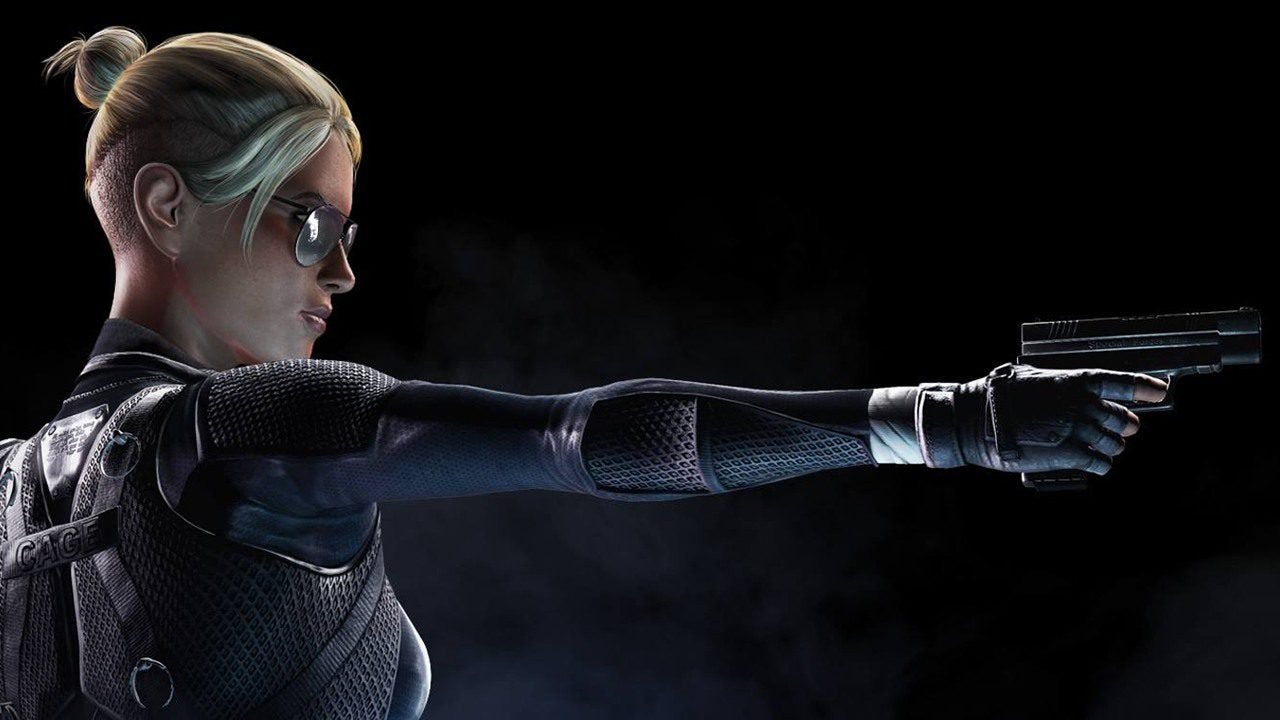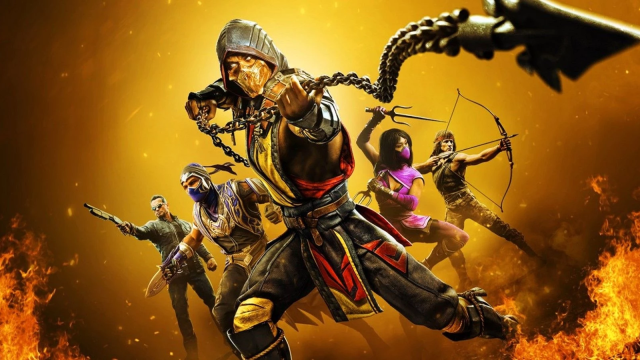io9 is currently be covering New York Comic-Con, and one of the many things being shown at the event is a new animated movie for the Mortal Kombat franchise. And as we’ve been wont to do throughout the year, this movie makes it as good time as any to look back on the series overall and see how far it’s come.
Released on October 8, 1992 for arcades and ported to various home consoles over the years, the original Mortal Kombat was developed by the now defunct Midway Games. With the intent of releasing a game that would compete with Street Fighter II: The World Warrior, Midway tasked programmer Ed Boon and artist John Tobias to making the project a reality. Joined by fellow artist John Vogel and sound designer Dan Forden, the four were influenced by Asian martial arts cinema and the scrapped ninja fighting game that Tobias initially pitched to Midway with actors Richard Divizio (Kano), Carlos Pesina (Raiden), and Daniel Pesina (Johnny Cage/Scorpion).
The influence of martial arts cinema is right there in the game’s plot, wherein a fighting tournament dictated by the Elder Gods will determine the fate of Earth (or rather, Earthrealm). Over the previous nine tournaments, the world of Outrealm and its ruler Shao Kahn have triumphed thanks to the four-armed warrior Goro. With no other options, the thunder god Raiden conscripts a motley crew of Earthrealm fighters to win the tournament and save the planet, which is being held on an island run by the sorcerer Shang Tsung.

Mortal Kombat became extremely popular in the best and worst ways. When it released on home consoles, it sold over three million copies within a few weeks, and its arcade version became one of the highest-grossing arcade games of 1993 in North America alongside NBA Jam. As it grew in popularity, its violence helped kickstart the moral panic of video games in the 90s alongside id’s Doom and Digital Pictures’ Night Trap,, resulting in the eventual conception of the Entertainment Software Ratings Board. The violence by way of gory Fatalities (and later Brutalities and X-ray moves) wouldn’t be the only controversy leveled at the franchise — microtransactions of recent games aside, there was much to make of its portrayal of women and racial stereotypes. Recent games have gone out of their way to address old aspects of the franchise’s past, both through deeper characterization and updated visual designs. And though 2019’s Mortal Kombat 11 attempted to make a case for peace in its story campaign, violence is a part of the franchise’s DNA that seems to be obsessed with just looking forward and trying to top itself as much as possible.
As Mortal Kombat grew into a franchise, it couldn’t help but grow into a multimedia entity. Comics and an animated TV show are fondly remembered, along with a short film from 2010. But in terms of longevity, it’s New Line Cinema’s 1995 film that’s helped the franchise persist for so long. (Having a kickass theme song certainly helps.) As Midway was going through bankruptcy, and the sequels were fluctuating in quality, the expanded media of the series came to a standstill. But following Warner Bros. Entertainment acquiring the studio and the subsequent 2011 reboot (under its current name, NetherRealm Studios), that arm of the MK brand restarted with new comics, multiple animated films, and a 2021 live action reboot movie whose sequel may still be happening.
Mortal Kombat’s appeal lies in how stupid it is. As much as the series has made strides to become more serious and mature through its story modes, the foolishness with which it operates on remains an intrinsic part of its identity. Watching a girl with the fangs of a horror monster bite the jugular out of a bug woman is one of those sights that never gets old and elicits some kind of reaction, whether you’re making the input or watching it happen on a screen. The franchise’s core concept of various characters from wildly different settings beating the shit out of each other is goofy, and it knows this. 2008’s Mortal Kombat vs. DC Universe basically opened the floodgates, and the reboot trilogy decided to go all in on this by bringing in characters from various properties as DLC fighters like the Xenomorph and Terminator.
At the same time, the series believes in itself. This is something that its imitators early on failed to recognise: underneath all the potentially traumatising blood and goofy one-liners, the games take themselves and the franchise’s comic book-like lore deeply seriously. Clearly, there’s no shortage of cinematic games these days, but NetherRealm’s series is something of a rarity in the fighting genre for how much it considers the narrative to be an equal to its competitive play. Yes, seeing two colour-coded ninjas team up to fight ninja cyborgs is automatically kickass. But knowing that they spent decades as enemies and later became best friends makes the sight of seeing them do team attacks or stand beside each other all the more satisfying. That conviction even manifests in-game as the characters trade barbs (or hisses) and allude to the events of the game’s campaign, effectively turning competitive play into a post-game adjacent to canon.
Equal parts over-the-top melodramatic and childishly silly, it’s hard to not fall a little in love with Mortal Kombat. Not unlike the Fast & Furious films, there’s a dumb sincerity to the franchise that makes it great to play and interesting to watch. Whatever kind of future it has, NetherRealm’s franchise will remain memorable because at the end of the day, there’s nothing truly like it.
Want more Gizmodo news? Check out when to expect the latest Marvel and Star Wars releases, what’s next for the DC Universe on film and TV, and everything you need to know about House of the Dragon and Lord of the Rings: The Rings of Power.
